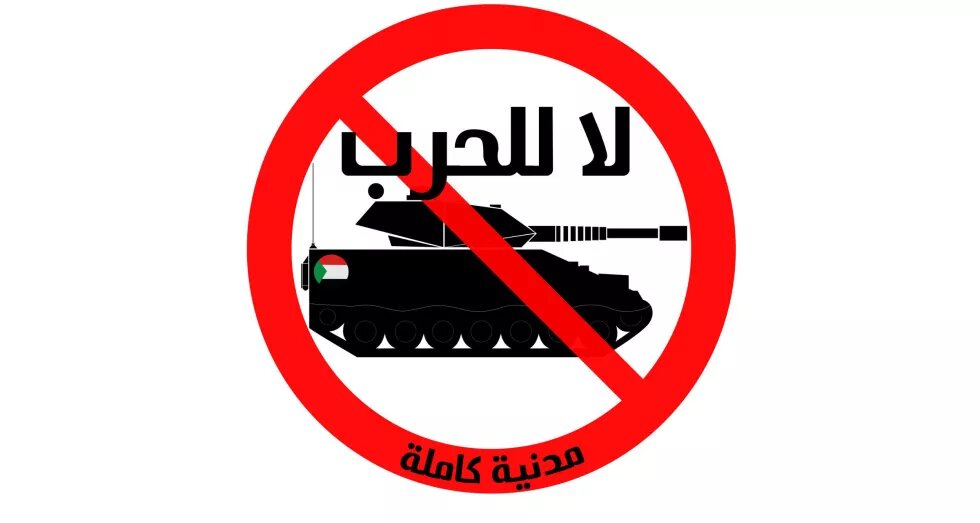Duaa Tariq is human rights defender and artist. She is the co-founder and director of our partner ‘Colour Sudan’, a group that works to promote civil and political rights in Sudan through art and theatre performances. Duaa Tariq peacefully participated in the Sudanese revolution in 2019.

Duaa, you have been in Khartoum since the beginning of the fighting - what does it mean for the civilian population, how does it affect you personally?
I live 14 minutes away from the military headquarters and the airport, where the main fighting has been taking place so far. And 10 minutes away from one of the RSF camps. We can hear and see the cross fire and the air bombing as the airplanes fly close to the roof tops. I am trapped with my sister and my two years old nephew, frightened and staying on the ground in a corridor the whole day to take shelter from the attacks and random bombing. We are running out of food and drinking water. There has been no electricity and water for three days now. Khartoum is a metropolitan area of more than 5 million people who struggle to supply themselves with basic needs like food and medicine because all movements of goods and people are very risky.
I want to be very clear at the same time: This war happening now is between the military and the Rapid Support Forces. It does not represent the will of the people or the revolution. It is not a “civil war”.
Before the war began, the armed and the civilian factions had for many months negotiated over a new political dispensation to produce a civilian-led government. Looking back at this process, what are your reflections?
These negotiations which produced the “Framework Agreement” in December 2022 led to this war right now. They were wrong from the beginning. The terms and conditions that the Forces for Freedom and Change (FFC) were negotiating were weak. There was no transparency in the negotiations. We as the street, were not consulted or a part of this. We all saw this coming just like the coup. We 100% believe that this war is a result of the framework agreement negotiations. Everyone could see this war between the military and the RSF coming.
The resistance committees, especially the youth, maintained continuous street protests against the coup ever since October 2021. What does the beginning of the war mean for the movement?
Of course, the war is very critical for the movement and affects us all. But it does not affect what we want at all. We were very clear in the neighborhood committees in our demands that the military should go back to the barracks and that the RSF should be dismantled. The war makes us even more committed to our first demand that we want 100% civilian rule.
Before, people were telling us that people were dying because they had taken to the streets. Right now people are dying in their homes. So right now the morale is very high on the demand for freedom and civilian rule. We are waiting for a ceasefire to be able to move again and resist.
As an activist in Sudan, how would you like to see Europe engage with this new crisis?
Right now, we are expecting Europe to stop pushing and advocating for this framework agreement. This should stop these negotiations with the military and the RSF. SAF and RSF should not be offered safe passage out of this. We are expecting the whole international community to stand behind justice. Justice for those who lost their lives during the four years demanding for civilian rule and democracy; those who were killed after the coup; and those who are dying in their houses since the beginning of this war. Europe and the international community have been ignoring our warning of this war coming. Right now we are expecting Europe to fully support us in our demand for a full democratic and civilian rule.